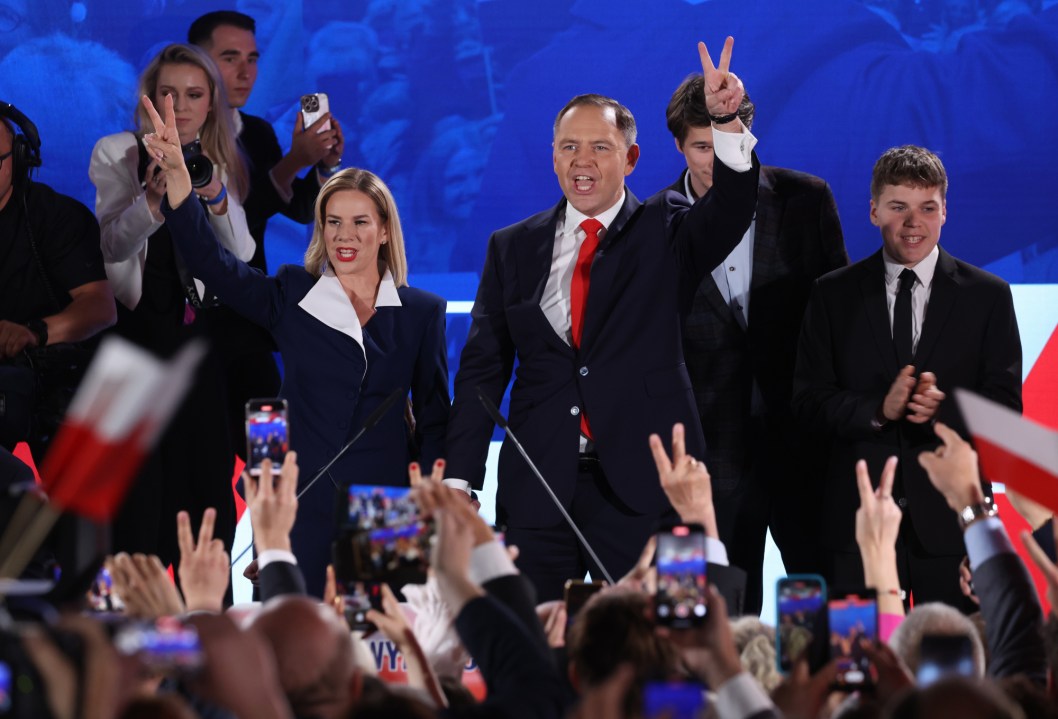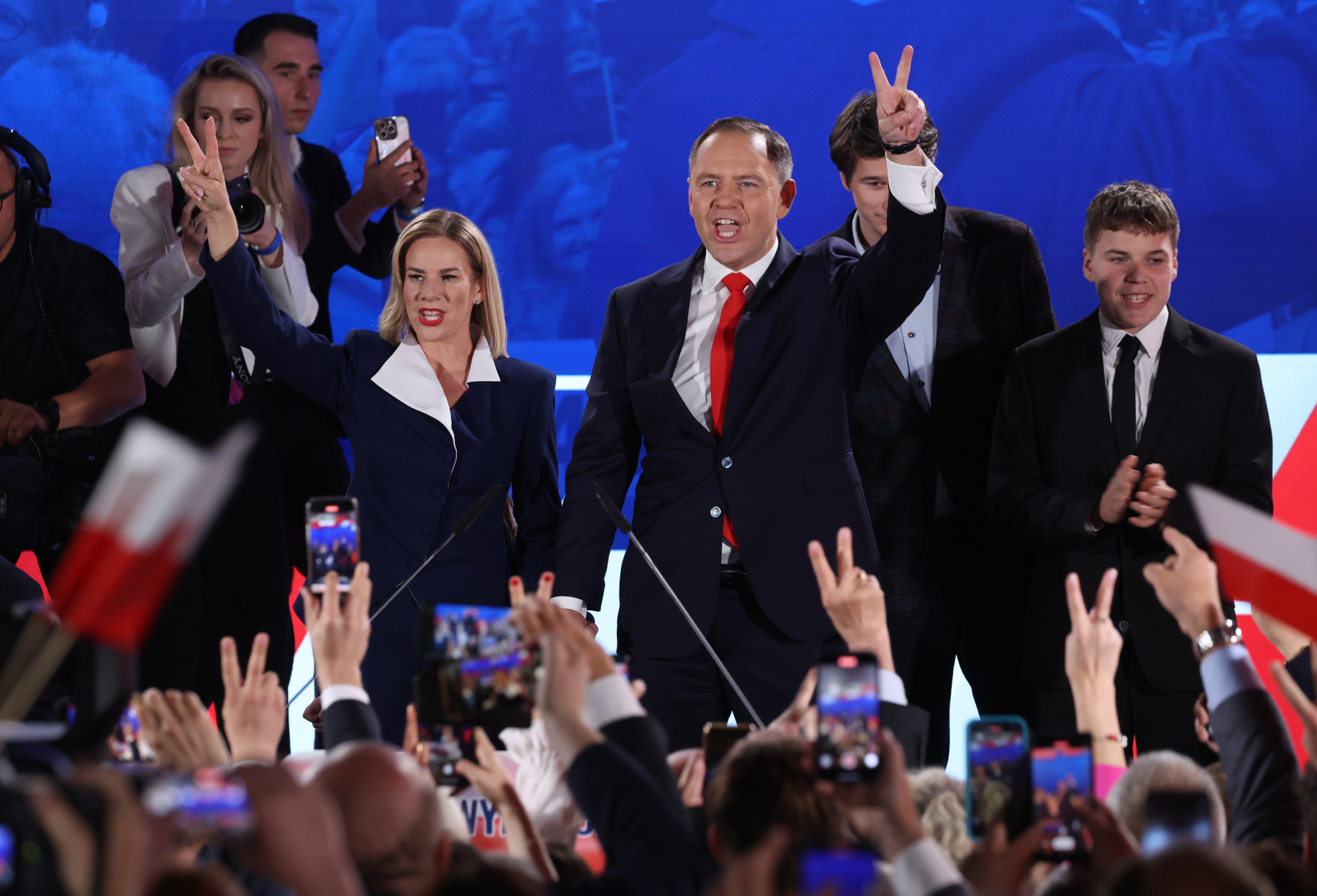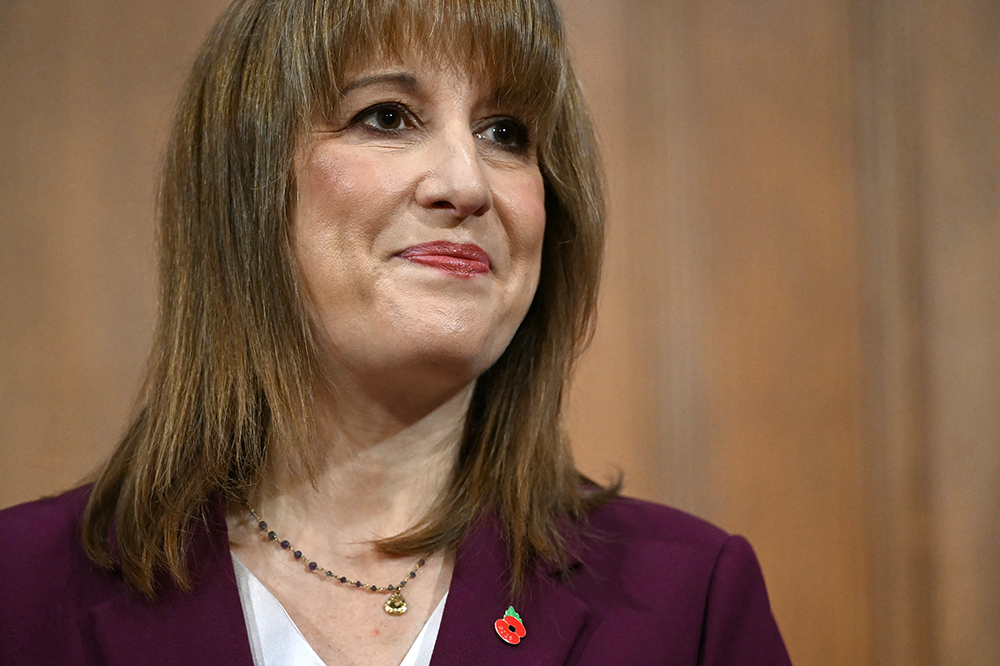In some ways, Poland’s presidential election on Sunday seems a simple continuation of the country’s long-standing status quo. Karol Nawrocki, Poland’s ‘populist’ new president, is expected to extend the existing gridlock between the president’s office and the cabinet, controlled respectively by Law and Justice (PiS) and Donald Tusk’s Civic Platform (PO).
The close result in the run-off, moreover, appears to be in line with the deep polarisation of Polish public opinion between two camps that increasingly see each other as enemies, not just as political opponents.
Poland’s right is radicalising and blurring its traditionally sharp foreign policy thinking
Yet, this short-term continuity should not blind us to signs of looming change. Poland’s right is radicalising and blurring its traditionally sharp foreign policy thinking. The reasons are twofold.
First, as one observer of Polish politics correctly observed in the wake of the of first round of the election, held on May 18, the real news of the election is not the vitality of ‘populism’ but rather the fact that the decades-long duopoly of PO and PiS is cracking. While both of the frontrunners received around 30 per cent of the vote in the first round, some 20 per cent went to candidates to Nawrocki’s right (and a smaller proportion to candidates to the left of Civic Platform’s Rafał Trzaskowski, the liberal mayor of Warsaw).
There was Sławomir Mentzen, a self-styled libertarian ran by ‘Confederation’, a grouping of radically Eurosceptic political forces, with over 14 per cent of the vote. Mentzen has called the EU ‘totalitarian’. At a campaign event in 2019, he stated that he didn’t want the following: ‘Jews, homosexuals, abortions, taxes and the EU.’
Another 6 per cent of the vote went to Grzegorz Braun, a Member of the European Parliament who has claimed there is a plot to turn Poland into a ‘Jewish state’. In 2023, among other stunts, he used a fire extinguisher on a menorah in the Polish parliament. (The same month, he also destroyed a Christmas tree in a park in Krakow for being decorated with EU and Pride flags.) Braun is virulently anti-Ukrainian, and keen to repeat Russia’s talking points about ‘banderites’ in Kyiv.
More detailed analyses of yesterday’s run-off are likely to show that it was Mentzen’s and Braun’s voters who put Nawrocki across the finish line. Yet, that fact obscures the fracture occurring on Poland’s right, which may make its future politics radically unpredictable.
The second, reinforcing reason has to do with the coming changes within Law and Justice itself. Jarosław Kaczyński, aged 75, continues to exercise an extraordinary control over the party he founded with his late twin brother, Lech. During PiS control of the government, the prime minister would be seen frequently visiting his party boss essentially to receive instructions on how to run the government. It is hard to imagine President Nawrocki crossing Kaczyński in any meaningful way, either.
But the increasingly frail Kaczyński will not be around forever. And for all his divisiveness, it seems unlikely that PiS will change for the better without him at the helm. Love them or hate them, the Kaczyński brothers have always had a strong geopolitical compass, which they had demonstrated at numerous occasions – from rushing to Tbilisi during the Russian invasion in 2008, to inoculating PiS against flirtations with Russian propaganda, even at the cost of straining Polish-Hungarian relations after 2022.
Unmoored from Kaczyński’s sense of historic memory, it is perfectly conceivable that the Polish right, including the future President Nawrocki, will increasingly move closer to European far-right parties who are indifferent or even welcoming of Russian aggression.
If Brussels represents a mortal threat to Poland’s statehood, as the likes of Mentzen and Braun like to argue, it stands to reason that new EU initiatives must be opposed at all cost – even if they might help bolster Europe’s defences against Russia.
Of course, nothing is predetermined in politics. It is equally conceivable that Poles will maintain their cross-partisan understanding of the fundamental danger of the world that they are living in, reflected in the country’s high levels of defence spending.
This morning, PO strategists should be busy thinking about what they can offer to socially conservative voters who may otherwise gravitate to candidates with a broken understanding of global affairs. One such offer, in this most recent election would have been a different candidate other than an activist, liberal mayor of Warsaw.
Yesterday’s result is a vindication, albeit a disappointing one, for those who argued all along that Radosław Sikorski, Poland’s foreign minister, would have been a far superior candidate in the general election. But whether that is the lesson that will be drawn by Poland’s governing coalition is another matter entirely.








Comments